Last Chance to Catch NYC's Holiday Notalgia Train
We met the voices of the NYC subway on our nostalgia ride this weekend!


The American Museum of Natural History is opening their newest exhibit, “Crocs: Ancient Predators in a Modern World” this week on May 28th. The exhibit, which we previewed this morning, details the lives of crocodilians from their ancient beginnings 0ver 200 million years ago to the present day. But the unique highlight of the exhibit, is the presence of twelve live crocodiles across four species: the Siamese Crocodile, American alligators, the African Dwarf Crocodile and the African Slender-Snouted Crocodile.
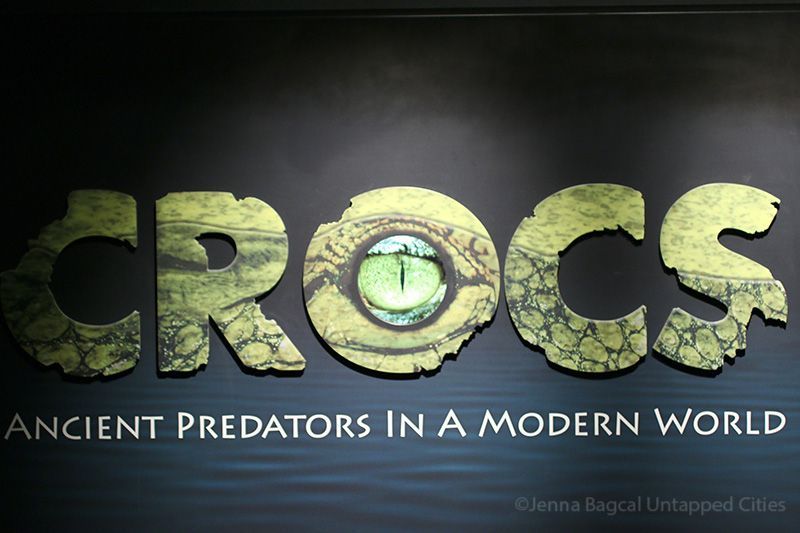
Hazel Davies, the manager of living exhibits at the museum, says that this exhibit is in collaboration with Clyde Peeling’s Reptiland in Allenwood, Pennsylvania, which loaned all the crocodiles to the museum. Mark Norell, the Chair and Macaulay Curated in the Division of Paleontology, the curator of Crocs (and the recent “Dinosaurs Among Us” says that crocodiles are the closest living relatives to birds.
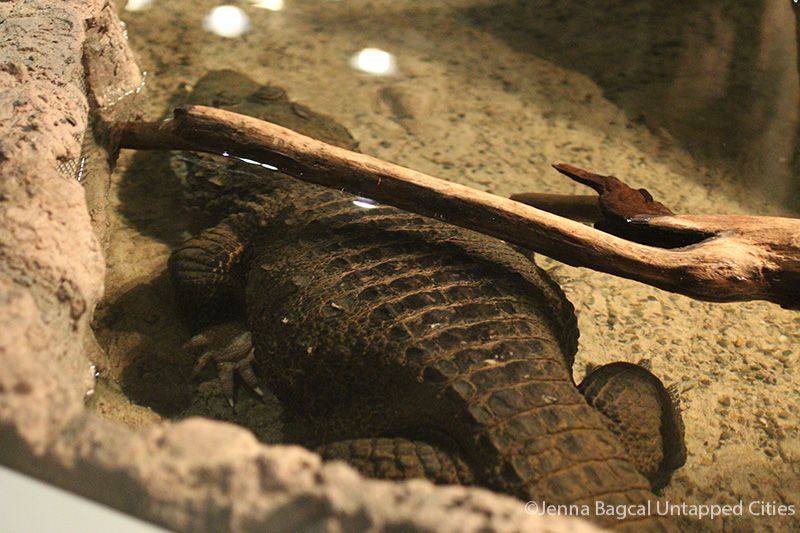
Norrell and his colleagues, George Amato and Evon Hekkala, have done extensive research on different crocodilian species, including how they interact with each other and humans and the importance of crocodile blood in the field of biomedicine.
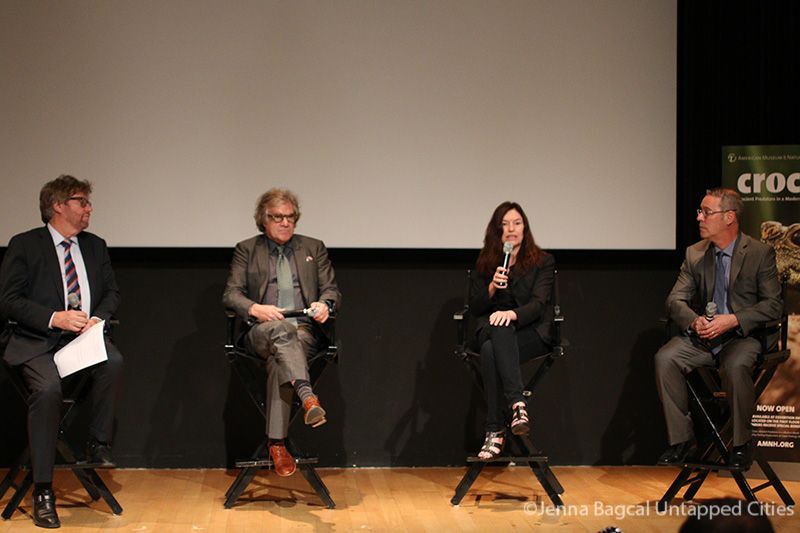
From left to right: Michael Novacek, Mark Norrell, Evon Hekkala and George Amato
In “Crocs,” museum visitors can experience a number of interactive crocodile-themed exhibits. One installation called “Croc Talk” says that crocodiles begin vocalizing when they are still in their eggs. Visitors can press a button and learn what different crocodile noises mean, including mating calls of different species and sounds they make when they are in danger. There is an exhibit that explains the key differences between crocodiles and alligators, video explainers and crocodile trivia.
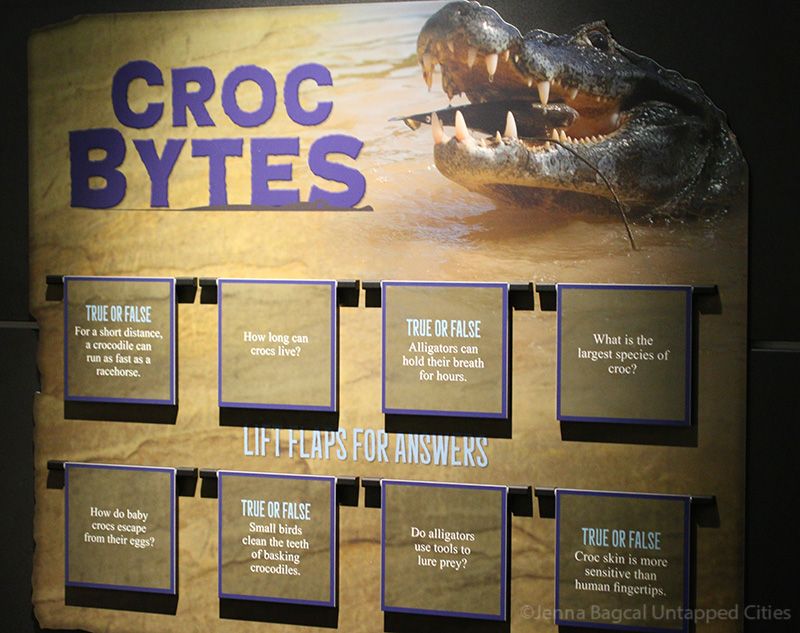
Crocodile-themed trivia
Each of the four crocodiles species is in an enclosed tank, with key facts about each crocodile printed on the outside. “We try to choose animals that will add a dimension to the exhibit and tell a story,” says Davies. “Having live animals, like crocodiles is also a fun way to get kids engaged.”
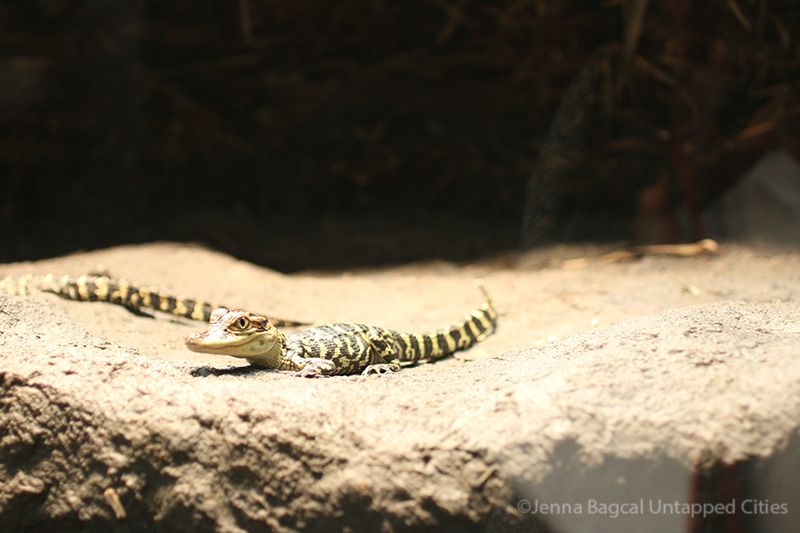
6-month-old American Alligator
Davies adds that it’s also a challenge to find the right crocodiles for the exhibit. One challenge is finding crocodiles that are raised in captivity.”We don’t want to take them out of their natural habitat,” says Davies.
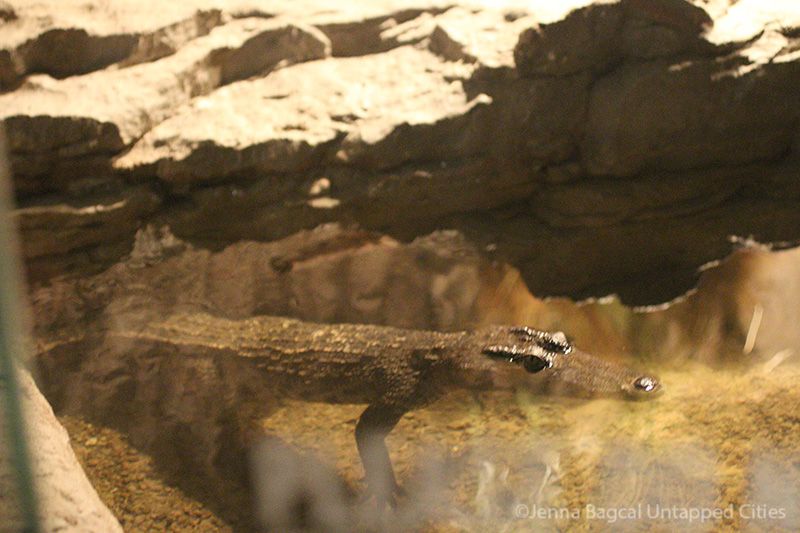 Siamese Crocodile
Siamese Crocodile
“Crocs: Ancient Predators in a Modern World” opens to the public on May 28, 2016 and closes on January 2, 2017.
Get tickets to see Crocs at the American Museum of Natural History. Next, read about The Top 10 Secrets of the American Museum of Natural History. Contact the author @jen_bagcal.
Subscribe to our newsletter